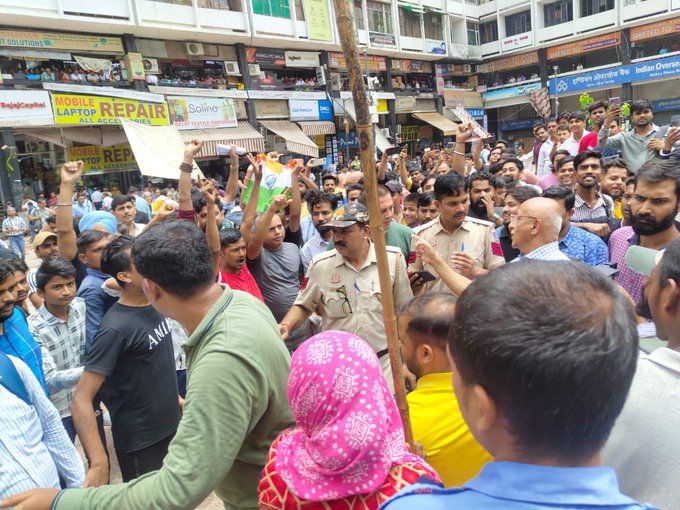
By Apoorvanand
What is common between the Bombay high court and Nehru Place? A newly formed Hindutvavadi spontaneity masquerading as patriotism is what binds them.
We have seen, time and again, how in many parts of India, the police and Hindutva mobs often act in unison – especially when they are faced with or dealing with Muslims or Christians. But when the courts begin to use the language and logic of Hindu nationalism, it is time to worry. It means the water has already gone above our heads.
Two recent events serve as warning signs – one in Mumbai, the other in Delhi. The first was a comment from the Bombay high court; the second, the response of a crowd at Delhi’s Nehru Place. What links these moments is a distant but morally urgent crisis: the genocide being carried out by Israel in Gaza and how we should respond to it.
That question was answered by a courtroom in the Bombay high court and a street in Nehru Place. That explains the connection that could possibly be between a courtroom in Mumbai and a marketplace in Delhi.
‘Must patriotism be at odds with solidarity with the oppressed people?’
“Why raise your voice in India against the massacre of Palestinians? Don’t we have enough of our own problems?” – these were not the words of an angry passerby on the street. This was the Bombay High Court rebuking the Communist Party of India (Marxist) (CPI (M)), which had sought judicial permission to protest against Israel’s genocidal acts in Gaza after the police denied them permission.
Rather than defending their constitutional right, the court reprimanded the petitioners, advising them to “be patriotic” and focus on domestic issues. What, the court seemed to ask, should India’s citizens have to do with Gaza?
One may ask the court in return: Must patriotism be at odds with solidarity with the oppressed people ? Must caring for one’s country mean closing your eyes to the suffering of others?
This story was originally published in thewire.in. Read the full story here.

